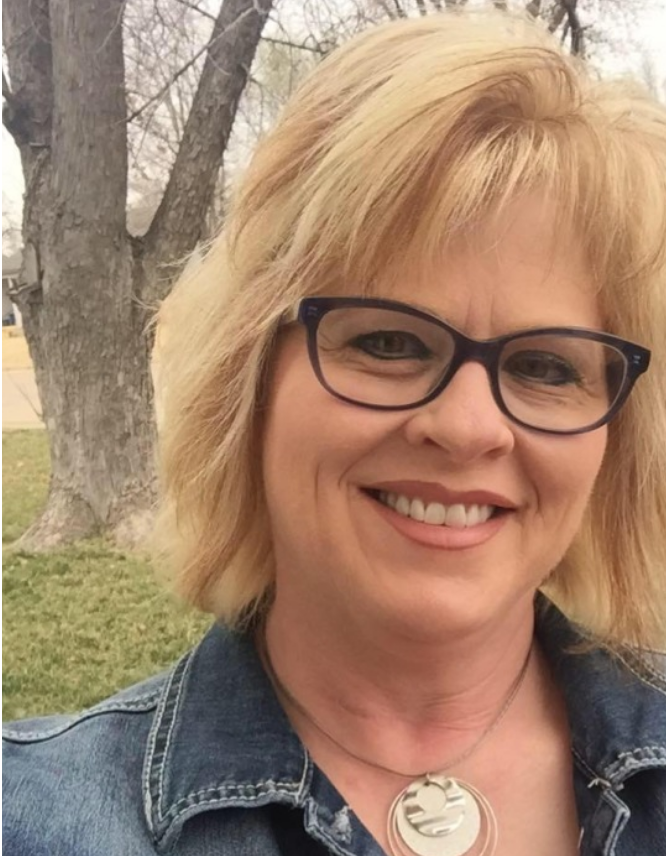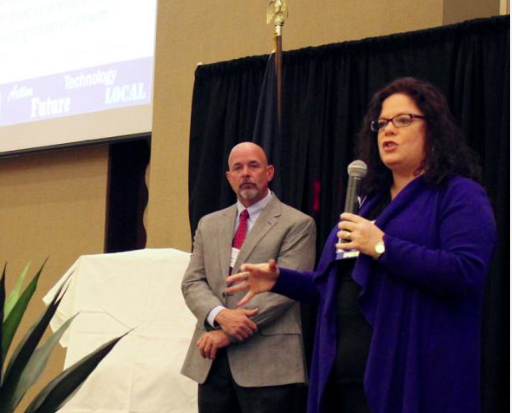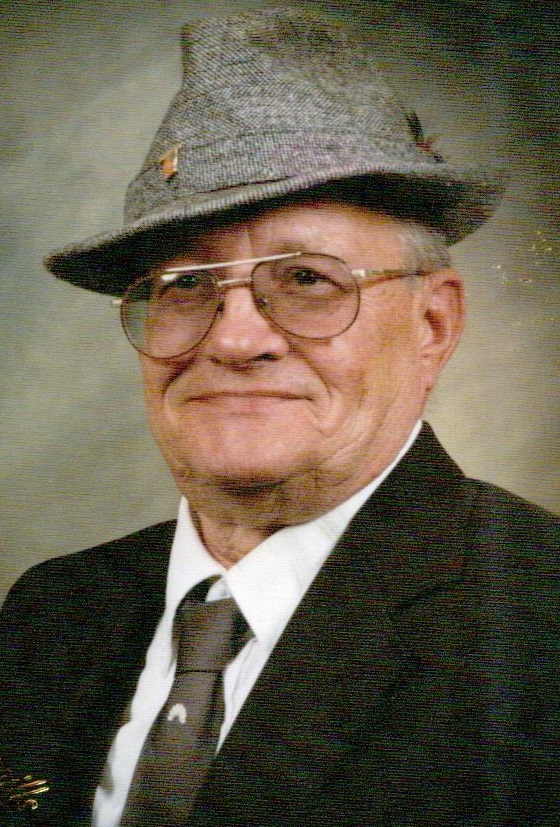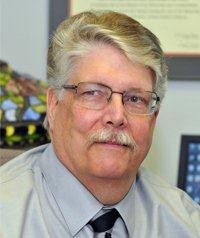Year: 2016
Roberts helps introduce bill to improve rural health care
WASHINGTON, DC – U.S. Sens. Pat Roberts (R-Kan.) and Al Franken (D-Minn.), co-chairmen of the Senate Rural Health Caucus, and Sens. John Barrasso (R-Wyo.) and Heidi Heitkamp (D-N.D.) today announced they have introduced legislation to improve rural health care by strengthening the rural health delivery system and providing relief to hospitals and other providers serving rural Americans. Today, November 17, is National Rural Health Day.
“Our rural communities face unique needs and often immense hurdles in regards to continuing to provide top-notch care,” said Roberts. “The R-HoPE Act recognizes that rural health care providers have very different needs than their urban counterparts and that health care is not one size fits all.”
Today is National #RuralHealth Day. I’m proud to introduce legislation to strengthen our rural health care system: https://t.co/SqWDggrSUr pic.twitter.com/upVWjfiD5j
— Pat Roberts (@SenPatRoberts) November 17, 2016
“For millions of rural Americans, getting access to high-quality health care can be a struggle,” said Franken. “As a member of the Senate Health Committee, I’ve traveled across Minnesota to meet with patients, providers, and rural health experts to better understand the challenges that rural communities face in accessing and providing quality care. This bipartisan legislation is a continuation of that effort and would help strengthen health care in Greater Minnesota and all across rural America.”
“In Wyoming, we understand the unique challenges our rural and frontier communities must overcome when people need medical care. Washington’s one-size-fits-all approach to health care simply doesn’t serve Wyoming patients well,” said Barrasso. “Our bill will help create an accessible rural health care system by putting our rural providers on a level playing field with other doctors and hospitals across the country. Most importantly, this bill ensures that folks in rural states like Wyoming have access to medical care as close to home as possible.”
“Every day I come to the U.S. Senate fighting for rural America, and that includes making sure families living in rural communities can access the quality, affordable health care they deserve,” said Heitkamp. “Our bipartisan bill would make needed changes to address the unique health care needs of small and remote towns in North Dakota and across the country. A one-size-fits-all model for health service doesn’t work for rural communities, and this bill would change that.”
The legislation, named the Craig Thomas Rural Hospital and Provider Equity Act (R-HoPE), honors the service of the late Sen. Craig Thomas (R-Wyo.), former chairman of the Senate Rural Health Caucus. The legislation makes changes to Medicare regulations for rural hospitals and providers, recognizing the difficulty in achieving the same economies of scale as large urban facilities.
Specifically, the legislation:
Equalizes Medicare’s disproportionate share of hospital payments to bring rural hospitals in line with urban facilities and provides additional assistance for small, rural hospitals that have a low-volume of patients. Often, these hospitals have trouble making ends meet under the Medicare payment system.
Extends incentive payments for doctors who practice in rural areas and protects the availability of other health care providers – such as rural health clinics, home health agencies, ambulances and mental health professionals.
Provides a Capital Infrastructure Loan Program to make loans available to help rural facilities improve crumbling buildings and infrastructure. Rural providers can apply to receive planning grants to help assess capital and infrastructure needs.
Allows marriage and family therapists and licensed professional counselors to bill Medicare for their services and be paid the rate of social workers, a provision championed by the late Sen. Thomas.
Creates a pilot program providing incentives for home health agencies to purchase and utilize home monitoring and communications technologies.
Facilitates telehealth services across state lines.
The legislation has received support from numerous rural health groups around the country including the National Rural Health Association, the State Offices of Rural Health, the American Hospital Association, and the National Association of Rural Health Clinics.
FHSU named to Victory Media’s 2017 Military Friendly® schools list
 FHSU University Relations and Marketing
FHSU University Relations and Marketing
Fort Hays State University’s commitment to quality, affordable education for veterans and current members of America’s armed forces was recognized again on Friday when the university was designated a 2017 Military Friendly® School by Victory Media.
Each year, the list of Military Friendly® Schools is provided to service members and their families to help them select the best college, university or trade school to receive the education and training needed to pursue a civilian career.
“Reaching and surpassing the higher and more comprehensive standard that was set this year really shows that FHSU is committed to the academic success of active duty personnel, veterans and their families by providing outstanding student services and support,” said Amber Elrod, a U.S. Army veteran and military student specialist at Fort Hays State.
Institutions earning the Military Friendly designation were evaluated using both public data sources and responses from Victory Media’s proprietary survey. More than 1,700 schools participated in the 2017 survey; 1,273 were awarded with the designation. Ratings methodology, criteria, and weightings were determined by Victory Media with input from the Military Friendly® Advisory Council of independent leaders in the higher education and military recruitment community.
Final ratings were determined by combining the institution’s survey scores with the assessment of the institution’s ability to meet thresholds for student retention, graduation, job placement, loan repayment, persistence (degree advancement or transfer) rates, and loan default rates for all students and, specifically, for student veterans.
FHSU will be showcased along with other 2017 Military Friendly schools in the annual Guide to Military Friendly Schools, special education issues of G.I. Jobs® and Military Spouse Magazine, and on militaryfriendly.com.
Victory Media, founded in 2001, is a service-disabled, veteran-owned small business that connects the military community to civilian employment, educational and entrepreneurial opportunities through its G.I. Jobs, Military Spouse, Vetrepreneur®, STEM JobsSM and Military Friendly brands.
For more information, go to the FHSU Virtual College military services website at www.fhsu.edu/virtualcollege/military, email [email protected] or call (785) 628-4291.
KHP: 16-year-old hospitalized after motorcycle skids, rolls
SEWARD – A teen was injured in an accident just before 1p.m. on Thursday in Seward County.
The Kansas Highway Patrol reported a 2005 Suzuki FZS driven by Elden Charles Bond, 16, Paoki, OK., was traveling north on Southwest County Road P at a high rate of speed.
The rider lost control of the motorcycle and entered into a side skid.
It entered the west ditch and rolled multiple times
Bond was transported to Southwest Medical Center.
He was wearing a helmet, according to the KHP.
Kansas man jailed after officers use taser, wrestle away a knife
 DOUGLAS COUNTY – Law enforcement authorities in Douglas County are investigating a suspect after a using a taser to wrestle away a knife from him.
DOUGLAS COUNTY – Law enforcement authorities in Douglas County are investigating a suspect after a using a taser to wrestle away a knife from him.
Just before 1 p.m. on Thursday, a police officer on routine patrol in the 200 block of W 10th Street in Lawrence observed a disturbance, according to a media release.
As the officer attempted to make contact with the three individuals involved in the disturbance, the officer observed one of the subjects was armed with a knife.
The officer gave verbal commands to drop the knife, and the subject complied. The officer learned that one of the other individuals involved in the disturbance was also allegedly armed with a knife. This suspect was non-compliant with the officer’s verbal commands. The officer attempted to physically detain this suspect, but he fled on foot.
The suspect was non-compliant with verbal commands given by the officers while brandishing the knife.
Officers used a Taser to subdue the man and were able to wrestle the knife away.
A short time later, two officers located the suspect in the 800 block of Tennessee Street. The suspect again refused verbal commands and brandished a knife as the officers approached him. One of the officers was able to move into position to use a Taser on the subject. The subject was tased after repeatedly ignoring verbal commands, and continued to resist officers after being tased. Officers were eventually able to physically wrestle the knife away from the suspect, and he was taken into custody.
The suspect, a 20-year-old Lawrence man was arrested and transported to an area hospital to be medically cleared per department policy following a Taser exposure.
The other two individuals involved in the incident, a man and a woman were interviewed and released. They were not injured in the incident.
Tamara Ann Pfeifer
 Tamara Ann Pfeifer, 47, of Great Bend formerly of Hays passed away Nov. 16, 2016, in Great Bend. She was born August 19, 1969 in Hays, Kansas to James J. Pfeifer and Norma Jean “Jeannie” Munsch. She graduated from Hays High in 1969 and attended Garden City Vo-Tech.
Tamara Ann Pfeifer, 47, of Great Bend formerly of Hays passed away Nov. 16, 2016, in Great Bend. She was born August 19, 1969 in Hays, Kansas to James J. Pfeifer and Norma Jean “Jeannie” Munsch. She graduated from Hays High in 1969 and attended Garden City Vo-Tech.
She had worked as a Cad Tech for Wheelchairs of Kansas and Sizewise. She took great pride in also being a firefighter with the Schoenchen, Kansas Fire Department Company 8, an EMT in Ellinwood and she was also a first responder. She truly enjoyed riding motorcycles and being a part of the American Legion Riders Post 180 of Great Bend, Kansas. Tammy was a loving mother who adored her son, Austin and her pet dog, Bridgette.
She is survived by her mother, Jeannioe Munsch of Great Bend, Kansas, her father, James J. Pfeifer of Olmitz, Kansas; sons, Austin Petz and Jay Petz both of Hays, Kansas and Dustin Petz of Minneapolis, Minnesota; a brother, Wade Helget of Rose Hill, Kansas; sisters, Pam Kreutzer and husband Doug of Hays, Kansas, Tarasa Miller and husband Shaun of Hoisington, Kansas, Heather Curtice and husband Brandon of Great Bend, Kansas and Amanda Niemann of Bay City, Michigan and one grandchild, Bo Petz of Hays, Kansas.
She was preceded in death by a sister, Rachel Green and her grandparents, Whitie and Leanore Munsch and Celly and Monica Pfeifer.
Funeral services will be held at 10 a.m. on Saturday at St. Anthony Catholic Church in Schoenchen. Burial will follow in St. Anthony Cemetery. The American Legion Riders post 180 will provide the escort.
Visitation will be from 4 to 8 p.m. Friday with a combined parish vigil service and rosary at 7 p.m. all at Brock’s-Keithley Funeral Chapel and Crematory 2509 Vine in Hays.
Memorial contributions are suggested to the Austin Petz education fund or the American Legion Post 180 of Great Bend.
Condolences may be left by guest book at www.keithleyfuneralchapels.com or emailed to [email protected].
Ticket presale special: Justin Moore and Lee Brice set to perform in Salina
Ellis PD: Don’t be embarrassed to report being scammed
 By BECKY KISER and COOPER SLOUGH
By BECKY KISER and COOPER SLOUGH
Hays Post
A $6 million scam ring based in Great Britain. Busted. More than two dozen people arrested.
An IRS scam ring hosted in India busted within the last two months.
An Ellis resident scammed out of $2,200 Wednesday. It’s still under investigation.
“They hacked somebody’s account,” according to Ellis Police Chief Taft Yates.
“The person received a message from this friend that said ‘I was just given this grant and I’m willing to share the money with you if you send me some money first.’ The first thing the victim should have done is call that friend to verify the message, but it didn’t happen. Then the person realized they were in too deep.
“Don’t be ashamed or embarrassed to call or report it,” Yates urges, “because we’ve got to get it stopped somewhere.”
Chief Yates wants people to realize “it doesn’t matter if you are male, female, rich, poor, young or old, it can and it will happen to anybody if you’re not diligent.”
“Scammers are always evolving–their tactics, their techniques–always changing them around.”
Yates advises making your computer passwords very strong and to “change them every now and again. Alert your friends of scams that have happened.”
It can come through Facebook, your email, a popup on your computer, on your phone, in the mail, somebody at your door or even in the gas station parking lot.
The scam artist targeting travelers happened in Ellis three years ago.
“A guy comes up to you and says ‘a buddy of mine just won all this money and if you’ve got a couple bucks, you can triple your money. All you gotta do is go play this game.’ They’re smooth talkers. They get you fed into it and then all of a sudden you’re losing your money and they’re not going to give it back. Somebody calls law enforcement and when his lookout–that you didn’t know about–sees a cop car coming up, they use their signal and these guys are gone.”
Be alert of suspicious letters received in the mail saying you’ve won something, “especially if you’ve never registered to win this item. Don’t send off for it, don’t call, don’t give any information about yourself,” Yates advises.
“Some things are legitimate,” he acknowledges. “But before you give any information to anybody, you need to completely check it out and make sure it’s valid. Make sure your insurance company actually sent someone to your house to check the roof damage. Make sure your relative really did call you.
Scammers use computers to dial randomly generated phone numbers.
“We had one instance where it sounded like a young person on the phone saying ‘Grandpa, I’m stranded and need some money.’ Grandpa asks who it is and the reply is ‘This is your grandson. You know me.’ Then Grandma gets on the phone and says ‘We have 10 grandsons. Which one is this?’ Click. The caller hangs up.
“You have to be smart and don’t give any personal information over the phone. None. Period. Just don’t.
“Another person got a call saying there was a arrest warrant out for them regarding a credit card. This person has never had a credit card.”
Yates also cautions against inheritance notices. “You didn’t inherit anything from anybody in England, Egypt or anyplace else. It did not happen–unless your mama told you it happened. If your mama tells you ‘you’re inheriting this money from my aunt,’ you can take your mother’s word for it. But this person on the phone or the internet, please don’t fall for it. It did not happen. You’re going to lose–a lot.”
Classified ads are also targeted.
“We just had this happen on two Nex-Tech classified ads,” Yates recalled.
“These people were very smooth at what they did. They wrote ‘I want to buy this item from you.’ Say you’re asking $1,000 for it. They send you an invalid check for $2,000 and ask you to send them $500 back and to keep the other $500 for your inconvenience.
“What they did is send you a no-good check for $2,000 and you just gave them $500 of your money.”
If you’re scammed, don’t try to negotiate, he recommends. Report it–as soon as it happens.
“We had a case where an individual was called on the phone and told ‘Do not hang up this phone. If you do, the SWAT team is coming in your door. You know you’ve done something wrong.’
“They talked to this person for over 45 minutes and convinced them to go to various stores and buy gift cards, scratch off the card code numbers and tell the code numbers to the caller so the scammers could get the money value from them. That money could be going to ISIS, Al Qaeda, Taliban, drug cartels, or just into their own pockets.
“Reporting these scams and getting them documented is the only way we’re going to be able to focus assets at a national and international level to locate and take care of these people,” said Yates.
Kansas water task force leaning toward sales tax proposal
By ANDY MARSO

A group appointed to study funding sources for Gov. Sam Brownback’s 50-year water plan is leaning toward proposing a dedicated sales tax.
Earl Lewis, assistant director of the Kansas Water Office, presented the preliminary results of the Blue Ribbon Task Force this week at the annual Kansas Water Conference in Manhattan.
Lewis said the task force has yet to finalize its report to Brownback, but as of Monday it intended to recommend a constitutional amendment dedicating 0.1 percent of the state sales tax to projects that secure the state’s water supply. Lewis said Minnesota, Missouri and Iowa have similar dedicated sales taxes.
The task force had some rigorous debates about other funding sources, he said.
“Any time you talk about water and fees and taxes, it’s going to be contentious,” Lewis said.
Rep. Tom Sloan, a Republican from Lawrence who has led the Legislature’s discussions on funding for water projects, said the dedicated sales tax idea would face opposition at the Statehouse.
Legislators raised the state’s sales tax to 6.5 percent in 2015 to balance the budget after a rancorous standoff that stretched the session to a record length.
But the budget problems have persisted, and Sloan said the crop of legislators elected last week would be reluctant to divert any of the current sales tax to water.
“Schools are underfunded, socials services are underfunded — there were a lot of campaigns run this fall over addressing those large issues,” he said. “So if you’re going to be taking revenue away from schools, even to fund something as important as water, it’s going to be a very difficult sell politically.”
Sloan said he would continue pushing for a plan that raises water-use fees instead.
The current low price of tap water compared to water-based products like beer causes people to undervalue clean water and waste it, he said, but increasing user fees would encourage conservation.
The task force also considered recommendations to increase irrigation fees, enact a residential electric fee to account for water used in energy production or create a 4-cent fee on bottled water. None of those found favor so far.
Water projects traditionally have been funded by a combination of fees on residential users and irrigators, as well as $8 million a year from the state general fund and an economic development fund.
But the Legislature has consistently failed to provide its share lately, shortchanging the state water fund by more than $50 million since 2009.
The water plan money is needed for projects like shoring up stream banks so less sediment flows into reservoirs and the much more costly work of dredging sediment once it’s in the reservoirs.
Lewis said new threats to the state’s water supply, like the explosive growth of blue-green algae, also need to be addressed.
“That’s a big issue for us now,” he said.
The task force estimated that Kansas would need about $55 million a year in new revenue to fund the governor’s water plan.
Tracy Streeter, director of the Kansas Water Office, pointed to the ongoing dredging of the John Redmond Reservoir near Burlington as an example of a successful project.
The reservoir had lost more than 40 percent of its original capacity to sedimentation, but the first phase of the dredging — completed last month —restored 1,800 acre-feet of storage.
That project received a funding boost from a $5.5 million legal judgment against Nebraska last year over its use of the Republican River.
That was a one-time windfall, though, and Streeter said it won’t be easy to pay for similar projects.
“We’re in a tough environment now to try and find money,” Streeter said.
Benjamin Robert Finley
 Lifelong Sharon Springs, KS resident Benjamin Robert Finley, 81, passed away on Tuesday, November 15, 2016 at the Colby Health and Rehab Nursing in Colby, Kansas.
Lifelong Sharon Springs, KS resident Benjamin Robert Finley, 81, passed away on Tuesday, November 15, 2016 at the Colby Health and Rehab Nursing in Colby, Kansas.
Ben was born on July 24, 1935 in Sharon Springs, Kansas to Marshall Joseph and Lena Roberta (Reed) Finley. He was one of four children. Growing up in Sharon Springs, Ben graduated from Sharon Springs High School in 1953. He then went on and attended four years of college at various different schools, and finally graduating with a Bachelor’s Degree from Fort Hays State University in Hays, Kansas.
On February 2, 1964, Ben married Alice Mary Baehler at the Methodist Church in Sharon Springs. To this union, three children were born; Daniel, Coleen and Steven.
Ben enjoyed doing Sudoku’s, crossword puzzles and playing cards of all kinds. He loved reading books in general, but really enjoyed reading westerns, especially one written by Louis L’Amour. He enjoyed playing his matching squares game on Sega, called Shanghai, attending dances, playing in pitch tournaments, drinking coffee and visiting with all of his coffee buddies at the gas station. Most of all, Ben loved spending time with his grandkids and keeping up with their activities.
Preceding Ben in death were his parents and one grandson Taylor Finley.
He is survived by his wife Alice of the home, three children; Daniel Finley and his wife Karen of Beaver, Oklahoma, Coleen Dautel of Goodland, Kansas and Steven Finley and his wife Amy of Seligman, Arizona. He is also survived by nine grandchildren, five great grandchildren, two brothers; Delgar Finley and his wife Phyllis and Howard Finley and his wife Norma, all of Sharon Springs, Kansas, and one sister Mattie Jackson of Fort Collins, Colorado.
Funeral Services for Ben will be held on Friday, November 18, 2016 at 2:00 PM MT at the Sharon Springs United Methodist Church with Reverend Paul McNall and Pastor Seth McGregor officiating. Burial will follow in the Sharon Springs Cemetery.
Visitation will be held on Friday, November 18, 2016 from 1:00 to 2:00 PM MT at the Church in Sharon Springs.
Memorials are designated to the Ben Finley Memorial Fund and may be left at the service or can be mailed to Koons-Russell Funeral Home, 211 N. Main St., Goodland, Kansas 67735.
Online condolences may be left for the family at www.koonsfuneralhome.com.
Funeral services have been entrusted to the Koons-Russell Funeral Home in Sharon Springs, Kansas.
INSIGHT KANSAS: Sometimes voters can surprise the experts and even themselves
In education, external events sometimes create a “teachable moment” by illustrating a basic principle. On November 8th Kansas voters considered six years of teachable moments as they rendered the results of the state’s general election.
We have evidence of teachable moments in the state House and Senate election results — probably 85 Republicans and 40 Democrats in the House and 31 Republicans and 9 Democrats in the Senate. However, according to the progressive “Women for Kansas” scorecard which examined candidate positions on healthcare, school finance, renewable energy and revenue reconstruction there are now at least 62 state House members and 20 state Senate members who rate a B or better grade.

The “at least” is important, because with numbers this large, moderate Republicans and Democrats may generate cooperation and policy agreement. This could reduce the reticence of members of both bodies for supporting efforts to reestablish the solid, fiscally responsible and moral — if not overly generous — programs and methods Kansas formerly provided to run government and meet the needs of at risk citizens. Surely, this reflects teachable moments.
A favorite American curmudgeon, H.L. Mencken wrote, “Democracy is the theory that the common people know what they want, and deserve to get it good and hard.” In November, 2010, they chose to elect Sam Brownback their governor, endorsing his promise of conservatism for Kansas – greatly reduced taxes, a skinnier school financing system, assessable school curricula, and an increase in work and a reduction in public dependency for poor adult Kansans. This was to be adrenalin to the economic heart of Kansas.
It took Governor Brownback a little time to get going. His first legislature in 2011 saw a significant reduction in K-12 Base Student Aid numbers, tightening in Workers’ Compensation qualifiers and elimination of state support for the arts. The 2012 Session was most notable for the elimination of taxation on the earnings of 330,000 closely held Kansas businesses, adjustments to state income taxes that increased them for the lowest bracket, and increases in sales, cigarette and alcohol taxes. With the 2012 election, the governor and allies took the opportunity to purge the legislature of the inconstant, insincere and unreliable Republican moderates and as many Democrats as possible. Since then there have been major ongoing efforts, with the aid of legislative conservatives, to move government and government policy in Kansas hard right.
By 2013 groups began to counter the policy propaganda coming from the governor’s own spinners and the Kansas Policy Institute, the Kansas Chamber of Commerce, and Americans for Prosperity. The Kansas Center for Economic Growth, the Kansas Health Institute News Service, Women for Kansas, Duane Goossen’s blog Kansas Budget and in 2016 the Save Kansas Coalition consisting of four past governors and others, some of whom were those purged legislative moderates, began a steady, verifiable accounting of the effects of the administration’s policies. With assistance from editorialists, journalists and electronic media the Kansas public began to absorb the meaning of the governor’s policies. As time passed discontents grew, the economy languished and the governor’s approval ratings sank.
Some supporters of the governor have joined him to blame Obama and reversals in the oil patch and agriculture for the lack of a robust outcome to the “Kansas Experiment.” But, the August primaries and November 8th general election had the greater number of voting Kansans deciding that they had grown tired of getting what they wanted “good and hard.” They say that experience is a good teacher. Perhaps we are about to see the truth of that maxim, and the results of teachable moments.
Dr. Mark Peterson teaches political science at the college level in Topeka, KS.
Sheriff: Search continues for suspects in Kansas triple murder
 HARVEY COUNTY – Law enforcement authorities continue to search for two suspects accused in connection with a triple homicide at a rural Harvey County residence.
HARVEY COUNTY – Law enforcement authorities continue to search for two suspects accused in connection with a triple homicide at a rural Harvey County residence.
Thirty-five year-old Jereme Nelson and 31-year-old Myrta Rangel are charged in arrest warrants with capital murder and three counts of first-degree murder.
Their bond has been set at $1 million each.
Authorities have written and served over twenty search warrants, followed up on numerous leads and have and spent many hours working the investigation, according to Harvey County Sheriff T. Walton.
“We have sent law enforcement officers to a number of states and we continue to work the case every day,” Walton wrote on social media.
“We have not found our suspects, but it’s only a matter of time before we do. We shall never give up on this case until justice is served.”
The bodies of 33-year-old Travis Street, 37-year-old Angela Graevs and the couple’s Newton friend, 52-year-old Richard Prouty were found outside a home in a rural area near Moundridge. The victims had been shot.
Harvey County Prosecuting Attorney David Yoder says the motive for the killings appears to be drug-related.
Robert F. Weber
Robert F. Weber, age 87, of Ellis passed away Tuesday, November 15, 2016 in Pratt, Kansas.
Arrangements are pending with Keithley Funeral Chapel of Ellis.












